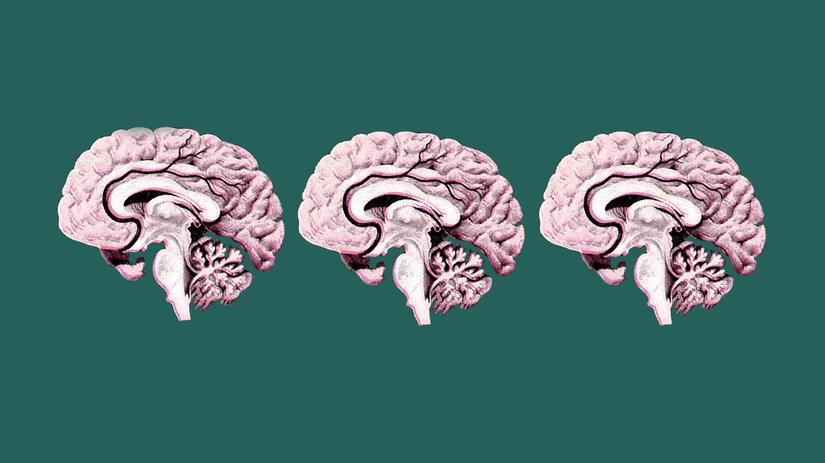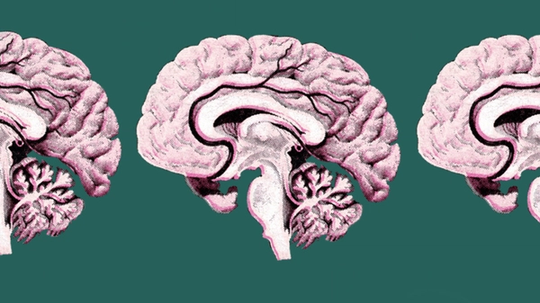The Startups Meeting the Growing Challenge of Dementia


As the world ages, this unremitting disease is forecast to affect 150 million people globally by 2050. Meet some of the innovators attempting to halt its advance and alleviate its symptoms.
- The annual cost of caring for people with dementia is forecast to climb to nearly $3tn globally by 2030.
Tackling dementia is one of the most difficult and pernicious problems facing humanity. More than 50 million people currently live with it, and that number is expected to triple by 2050 as the global population ages.
“The suffering that results is enormous,” says World Health Organization Director-General Tedros Adhanom Ghebreyesus. That is not just felt by people with dementia, but also by their families, and puts great financial strain on healthcare systems. Treating and caring for people with dementia is expected to cost the global economy nearly $3tn a year by 2030, according to WHO estimates.
This challenge is being addressed by many innovative startups, through developing drugs that could potentially slow or halt the disease as well as through initiatives like music therapy.
Professor Philip Scheltens dedicated his 35-year academic career to finding ways to detect Alzheimer’s disease, the most common form of dementia. Now, he is the head of the €273m EQT Dementia Fund, which focuses on investing in companies developing drugs to treat it
Scheltens describes what he does as “working for the patient of the future.” He imagines a future cocktail of drugs that could halt the disease, much like the treatment model for HIV, and he’s distributing millions of euros to companies that he thinks could be part of that mix.
Scheltens’ investment strategy is informed by the fact that dementia is “all about proteins that are misfolding and that are making the brain ill.” Startups he has invested in include those investigating amyloid protein build-up, which two recently FDA-approved drugs have been shown to reduce. Two of his firms focus on a related protein linked to dementia called tau. Others are looking at TDP-43, which is linked to ALS.
The idea for a Dementia Fund came from Rene Kuijten, head of EQT Life Sciences. He says that the field is at a development stage where oncology was 20 years ago, with many promising opportunities but few investors with knowledge of the disease. Together with Scheltens, a world-renowned expert in Alzheimer's, Kuijten designed the fund's scope and convinced investors to take part.
Identifying dementia signs
Even with the drugs to treat it, tackling dementia requires the ability to identify it as early as possible. That means data collection and identifying relevant biomarkers in blood are crucial areas of focus for many startups.
Professor Chris Molloy, CEO of Medicines Discovery Catapult, the UK’s independent and not-for-profit drug discovery innovation centre, imagines a future where monitoring brain health is as routine as checking your heart rate on a Fitbit.
Cortirio, one of the firms he has supported, is developing a wearable brain-activity harness that collects neural data at home at a fraction of the traditional cost in hospitals. Similarly, Cambridge Vision Technology is pioneering retinal scans that detect biomarkers for dementia up to 10-20 years before symptoms appear.
Both of these startups’ technologies are “non-invasive and amenable to AI development,” Molloy says, which is a “game-changer” for reducing the cost of collecting data, and when it comes to feeding machine learning algorithms that could enhance dementia treatments.
Other startup firms his government- and industry-funded body supports are investigating specific blood-based biomarkers, which can be used to spot dementia before significant cognitive decline occurs.
Smart lamps and music therapy
For those already living with dementia, startups are also working to improve their quality of life – and that of their caregivers.
Belgian firm Nobi, which is backed by EQT, has developed a “smart,” machine learning-enabled lamp with a camera, microphone and speaker that is designed to reduce falls, a leading cause of injury and hospitalization among people with dementia. The lamp illuminates a path when someone gets out of bed to reduce panic, and also alerts caregivers within 30 seconds if a fall occurs. In one UK study, Nobi’s lamps cut falls by 84 percent. “If you can reduce falls by that amount, you’re not just preventing injuries but also easing the burden on emergency services and improving patients’ quality of life,” says CEO Roeland Pelgrims.
Music is another potential avenue for dementia care. Hull-based MediMusic uses machine learning to create highly personalized playlists that alleviate stress and anxiety. The company’s MediBeat device plays curated tracks to stimulate dopamine release, smooth breathing and improve cognitive responses.
“Our goal is to achieve specific, measurable healthcare objectives using music,” says CEO Gary Jones. By calming people with dementia, MediMusic not only enhances well-being but also reduces the workload for caregivers.
Social-Ability, led by John Ramsay, has taken a more interactive approach. Its Magic Table 360, an interactive light projector, encourages connection through games and activities. Inspired by Ramsay’s personal experience caring for his father with dementia, the device offers over 150 activities tailored to various cognitive levels. From popping bubbles to solving quizzes, the Magic Table helps families reconnect with loved ones who may otherwise struggle to communicate or are non-verbal.
“I want care homes to be places where residents live meaningful lives,” Ramsay says. According to Ramsay, The device also benefits caregivers by calming residents and potentially reducing staff turnover.
Whether it’s cutting-edge research into drugs that could potentially treat different forms of dementia, better data collection to understand it, or clever and compassionate ways to care for people who have it, momentum is clearly building in the fight against this merciless disease. Progress must seem slow to those with family members who have experienced the disease, but at least there is reason for millions of “future patients,” as Philip Scheltens puts it, to have hope.
ThinQ by EQT: A publication where private markets meet open minds. Join the conversation – [email protected]






